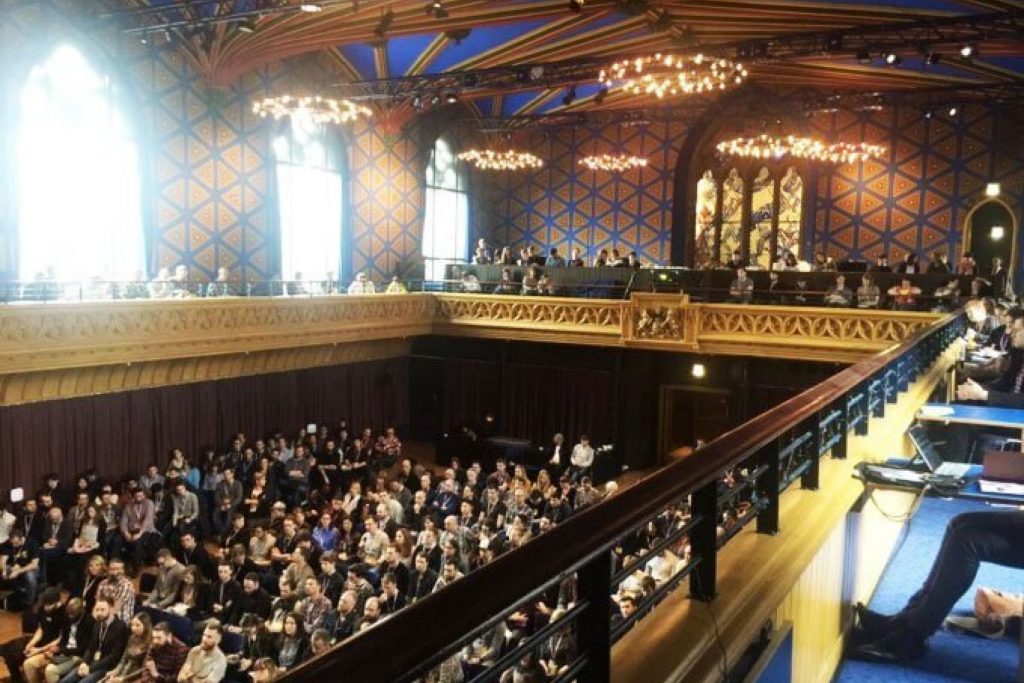Design It; Build It. (DIBI 2016) Day 1

It’s been well over a year since I last attended a digital conference, which is a crying shame when I personally find them so invigorating. At every conference I’ve ever been to, I have walked in excited to learn something new, and walked away revitalised, energised and “ready to build all things and make them awesome”.
Today at DIBI 2016, was no exception.
The first speaker of the day, Cap Watkins of BuzzFeed (@cap), kicked off proceedings with a fascinating (and hilarious) talk about institutionalising change at BuzzFeed. Evolution is critical in our industry, and sometimes achieving real change when the machine is already in motion can be a daunting and difficult task. Cap talked about identifying what your “ideal world” for the company would be, and faking it till you make it – pretend you’re already there even if you are not. Your new hires will think the company is already there, and the old guard will be swept up for the ride.
It’s a great sentiment that extends far beyond its immediate connotations, all the way to “being the change you want to see in the world”. Over the next year, I plan to lean on this thought process a lot as Komodo and its team evolves and grows. One thing Cap did highlight though was that patience can be key here. Some great advice he suggested was to simply “measure each change on the how many **** do I give about this scale”, and you will soon prioritise the important items and learn to let the little things go.
It was interesting to me that during the Q and A session after Cap’s talk, he said something that I as a developer had never really acknowledged, but immediately found profound.
“Every code decision ultimately becomes a UX decision.”
This one statement is the very reason I love to attend conferences like DIBI. It’s easy as a developer to fire and forget – to write a piece of code, make sure it works functionally and move on. In truth, that’s only half the story. What happens if that code doesn’t render correctly on mobile devices? Users can’t reach their end goals and your conversions fall off. What happens if that piece of code when run at scale and under load falls over? The site stops working and you have the ultimate UX failure!
Even in the most straightforward instances, code directly dictates user experience and as developers, we need to empathise with everyone who touches what we create to make sure we’re catering as best we can to their needs and desires. Empathy was one of two continuing themes from day one at DIBI that I will go on to talk about in a later post (the other being metrics and evolution).
In the time since my last conference, so much has changed for me personally and professionally, and in the digital industry as a whole. We as developers and designers accept that every second we are not learning and evolving, we are falling behind.
We all know conferences are a great opportunity for knowledge and skills exchange, but more than that they can facilitate entire business evolution through seeing what is working elsewhere in the industry. Networking with experts in your field can really open up your eyes and challenge your assumptions at every level.
I can’t wait to see what day two brings.

Sign up to our newsletter
Be the first to hear about our events, industry insights and what’s going on at Komodo. We promise we’ll respect your inbox and only send you stuff we’d actually read ourselves.







